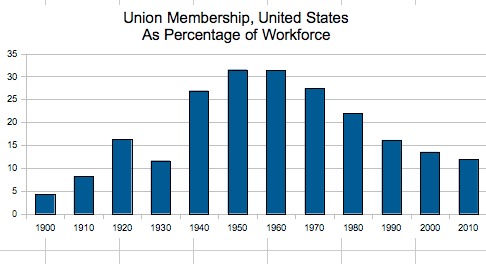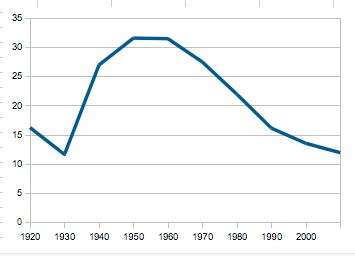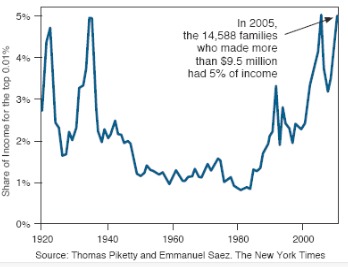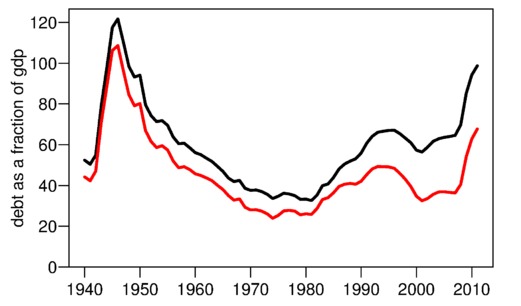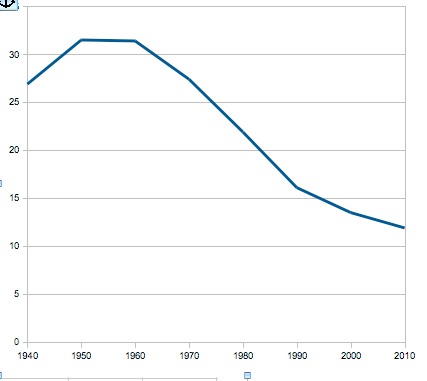Who are the real "job creators"? Contrary to conventional wisdom, the answer seems to be: People who have jobs - particularly those which pay well. Well-paid employees buy things, and that creates jobs for other people.
And what creates those kinds of jobs? A healthy union movement. Unions are also a bulwark against income inequality, an economic distortion which even conservative Forbes magazine acknowledges is bad for the economy.
With that in mind, let's take a quick look at union rates in the United States since 1900, using a graph I prepared from public data:
These figures can understate actual unemployment, especially during times of higher long-term joblessness, but they're a good marker for its trends. Now let's use that data to compare union membership against wealth inequity, using the marker of income accumulation by the highest-earning ten percent that was established by Piketty and Saez in their seminal paper on the topic of wealth inequity. First we'll show the unemployment data, then theirs:
At first glance it's pretty striking, isn't it? While it's hard to establish cause-and-effect, there seems to be a relationship between unionization and reasonable wealth distribution. And how does wealth distribution affect the economy as a whole?
Sorry they're a little hard to read, but the red bars show the role that personal consumption plays in the GDP . Without it we're dead in the water - and by "we" I mean the overall economy, not that sliver of it represented by the Dow Jones.
What about Washington's seemingly sacred and all-consuming issue of deficits? Let's compare unionization rates with the level of government debt (as a percentage of the GDP ) for fun and see what happens:
It looks to all the world as if there's a correlation here: Union membership goes down - deficits go up. Perhaps the correlation isn't as strong as it looks, but the idea isn't crazy. Higher-paid employees pay more in taxes, which is good for the government's bottom line. They require fewer government services. The same is true of their families, neighborhoods, and communities. And their contribution to economic growth means everybody's better off.
The lesson for all those deficit-obsessed policymakers might be, to paraphrase the late Joe Hill: Don't "austerize," organize.
Maybe that's why the 1956 Republican Party platform boasted that under the leadership of President Eisenhower "unions have grown in strength and responsibility, and have increased their membership by 2 millions." They knew what was good for the economy … and good for business.
These Republicans understood that, fiscally speaking, the old song was right: there is power in a union.

